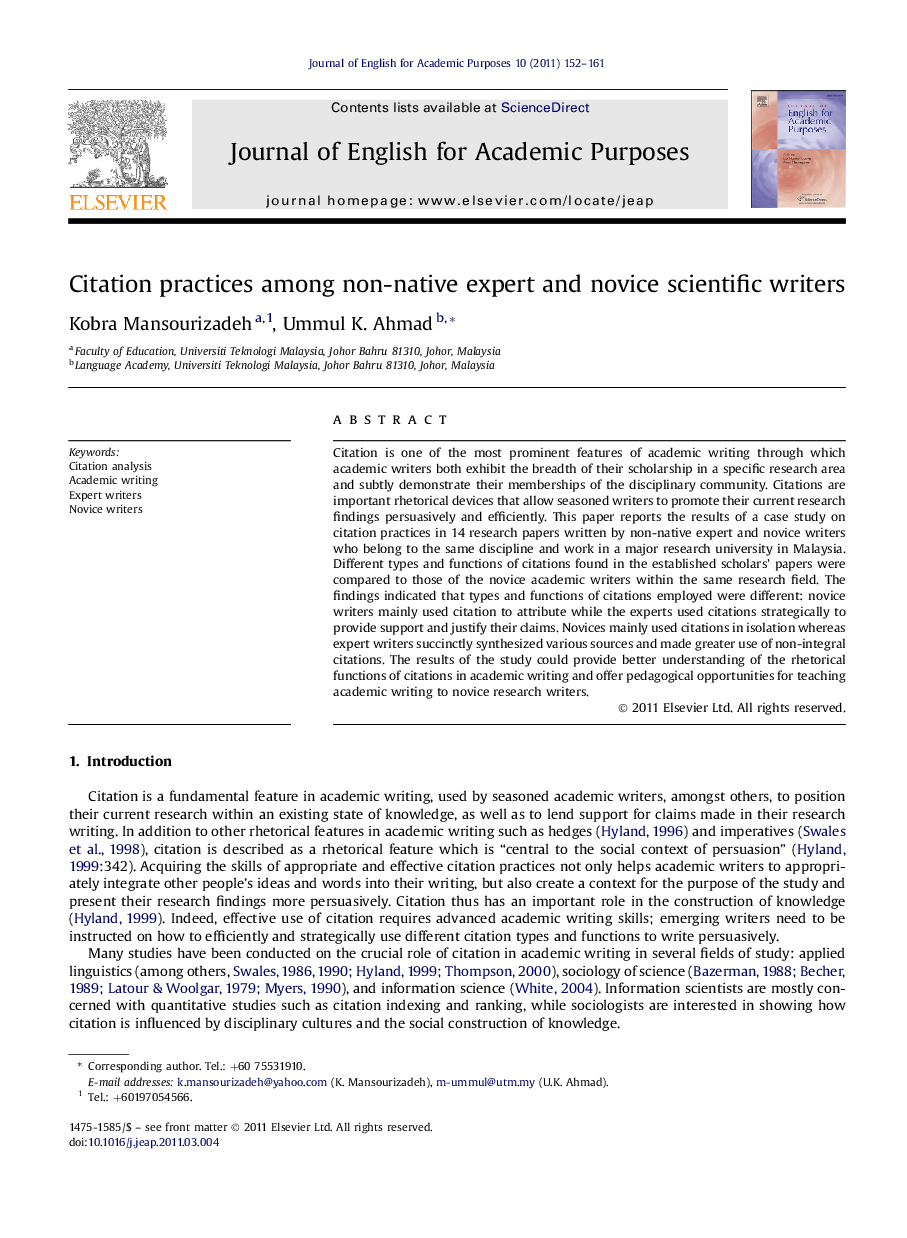| Article ID | Journal | Published Year | Pages | File Type |
|---|---|---|---|---|
| 360366 | Journal of English for Academic Purposes | 2011 | 10 Pages |
Citation is one of the most prominent features of academic writing through which academic writers both exhibit the breadth of their scholarship in a specific research area and subtly demonstrate their memberships of the disciplinary community. Citations are important rhetorical devices that allow seasoned writers to promote their current research findings persuasively and efficiently. This paper reports the results of a case study on citation practices in 14 research papers written by non-native expert and novice writers who belong to the same discipline and work in a major research university in Malaysia. Different types and functions of citations found in the established scholars’ papers were compared to those of the novice academic writers within the same research field. The findings indicated that types and functions of citations employed were different: novice writers mainly used citation to attribute while the experts used citations strategically to provide support and justify their claims. Novices mainly used citations in isolation whereas expert writers succinctly synthesized various sources and made greater use of non-integral citations. The results of the study could provide better understanding of the rhetorical functions of citations in academic writing and offer pedagogical opportunities for teaching academic writing to novice research writers.
► Types and functions of citations in expert and novice papers were investigated. ► Experts strategically used citations to support and establish links between sources. Novices mainly used citations for attribution. ► Experts made a greater use of non-integral citations. Novices used integral-verb controlling citations much more than integral-naming.
